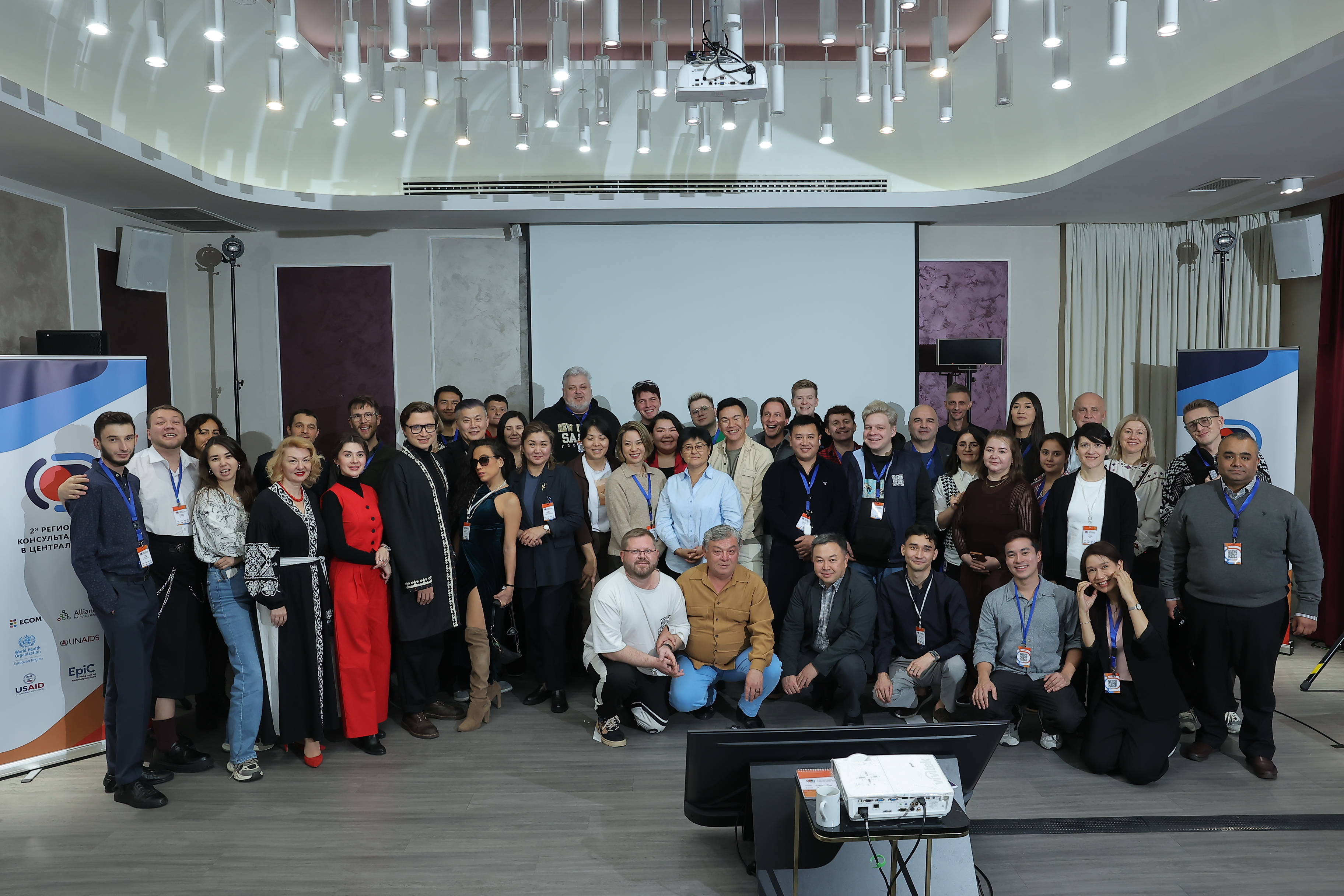On October 26, Executive Director of ECOM Vitaly Djuma spoke during the webinar “Setting ambitious targets for European HIV response and reducing stigma.”
The webinar was dedicated to the results of the meetings of the World Health Organization (WHO) Regional Office for Europe and the European Center for Disease Prevention and Control (ECDC), which took place in September this year. The webinar participants were representatives and activists of civil society and communities in the EECA region. The goal of the event was to deepen their knowledge of the process of setting national targets in response to HIV and to explain how WHO/ECDC recommendations impact setting such targets in the coming years.
Vitaly Djuma spoke about HIV among MSM in the EECA region. Here are the main points from his speech.
WHO identifies the following high-priority actions for the countries:
- Gathering and using strategic information for targeted activities and ensuring equity throughout the provision of services.
- Preventing HIV transmission, particularly among key populations.
- Strategically increasing HIV testing volumes and early detection of HIV.
- Early access to treatment and rapid access to effective HIV care.
- Maintaining the current progress in funding and planning.
Vitaly Djuma paid special attention to the issue of HIV pre-exposure prophylaxis (PrEP) as one of the priority areas to control the epidemic. Thus, last year WHO released an update to its implementation guidance “Differentiated and simplified pre-exposure prophylaxis for HIV prevention,” which aims to support differentiated, simplified, demedicalized and comprehensive PrEP services.
In the EECA region, PrEP programs have already started or will soon start in 10 countries, in 9 of which they work for key groups, including MSM.
At the moment, there are 18,000 participants in PrEP programs in the region, of which 16,000 are in Ukraine, Kazakhstan and Sakartvelo. But at the same time, Kazakhstan is demonstrating significant success in implementing PrEP. The country has the most modern protocols in place, PrEP programs are supported by government funding, and by 2026 it is planned to cover 32,600 people (3,000 people as of September 2023).
Factors that complicate the scaling of programs: low awareness among the community and limited knowledge among medical personnel; medicalization of PrEP services and the possibility of prescribing therapy only by doctors; existing protocols do not include community-based services; stigma and discrimination from healthcare workers.
Vitaly Djuma also noted that wider implementation of PrEP will be facilitated by: provision of community-based services; modification of protocols in accordance with WHO guidelines; increasing demand for PrEP in communities; training healthcare workers; activities to reduce stigma and discrimination.
In general, for the EECA region, according to WHO recommendations, strategic shifts are necessary:
- Improvements on 95-95-95 targets: refocus testing, decentralize and use a full range of methods
- Reducing transmission: wider platforms for service delivery; emphasis on pre-exposure prophylaxis
- Reducing mortality: immediate provision of ART, acceleration of TB/HIV services
- Reducing barriers, strong community involvement within UHC
- Embracing innovations: equal access throughout the region
- Improving data quality and analytical capabilities
- Sustainable, predictable funding for HIV services
The webinar was organized by the Regional Civil Society and Community Support, Coordination and Communication Platform – EECA, implemented by the Eurasian Harm Reduction Association (EHRA).






Комментарии
Пока никто не оставил комментарий